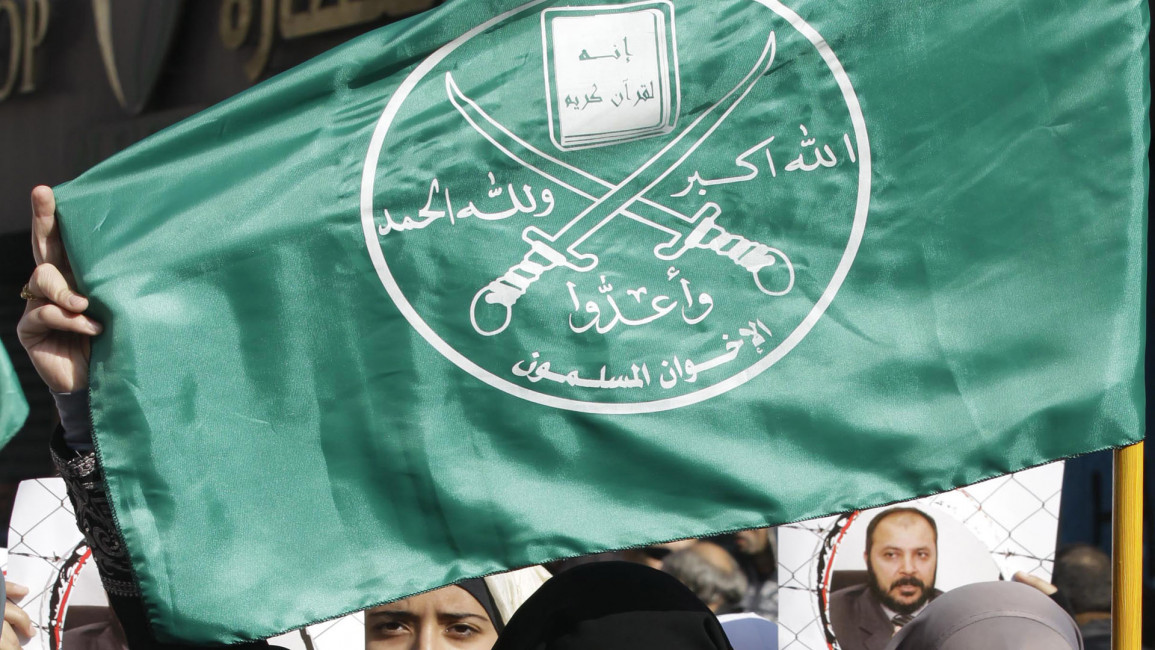
Reevaluating the 'threat' from the Muslim Brotherhood
All that the Arab world's authoritaian rulers needed was to find an "enemy" to justify their counter-revolution and coup against the "Arab Spring".
As the goal of these authoritarian states was to halt the wave of change and democratic transition in the region at any cost, it was necessary to manufacture and then inflate an enemy. This to justify the repression and heavy handed handling of the revolutions and all those who represent them, particularly the youth.
In order to get the West to accept this scenario, it was necessary to look for the weakest link in the Arab revolutions, namely, the Islamist link. The Islamists were subsequently held up as a scarecrow, as has been the routine for the past three decades, and perhaps this explains the Western silence and even collusion with respect to the ongoing undoing the Arab Spring
| The objective of Arab authoritarian regimes was to manufacture a grave Muslim Brotherhood threat that must be eliminated. |
For the past two years, the main objective of Arab authoritarian regimes was to manufacture and exaggerate a grave Muslim Brotherhood threat that had to be stopped and eliminated. Local, regional, and international parties took part in manufacturing this threat, with millions of dollars in funding.
The stated rationale of these parties was the claim that the Muslim Brotherhood sought to export the revolution beyond Egypt's borders to dominate the Arab region. A chorus of writers and pundits, both Arab and Western, peddled this fabricated scenario far and wide.
Manufacturing an enemy
In effect, the fabrication of the alleged Muslim Brotherhood threat underwent several stages.
First, Arab public opinions were primed and mobilised against this "threat".
Then, the regional counter-revolution was activated, a phase during which we saw satellite channels, journalists, pundits, politicians, and even clerics attack the Arab revolutions, purporting they brought nothing but calamity to the land and the people.
These voices of course benefitted from the Muslim Brotherhood's recklessness and blunders in power, as well as its lack of governance experience. This all paved the way for the July 2013 coup in Egypt.
After the Muslim Brotherhood were ousted, the second stage began with the attempt to sell the manufactured Muslim Brotherhood threat outside Egypt. There the Islamist group was portrayed as the head of the snake and the source of all evil in the region and the world. The media machine of the counter-revolution proceeded to demonise the Muslim Brotherhood, allegedly as part of a major international conspiracy against Egypt and the world.
Amusingly and nonsensically, otherwise opposed groups and countries were claimed to be on the same side, with Iran, Israel, the US, and Hamas all part of this supposed grand conspiracy. The sponsors of the regional counter revolution put pressure on decision makers in the West, through financial and diplomatic means, to designate the Muslim Brotherhood a terrorist organisation. Western capitals were coaxed to crack down on the Muslim Brotherhood and look for any loophole that supported this narrative.
When the West did not take the bait, the counter revolution moved to the third stage: Claiming that the Muslim Brotherhood "threat" was linked to the Islamic State group (IS) threat, and that there is an alliance between the two. This is evident from remarks made by General Abdel Fatah al-Sisi, and his attempts to place the Muslim Brotherhood in the same category as terrorist groups.
Two weeks ago, in an interview with The Washington Post, Sisi said the Muslim Brotherhood was "the parent organisation of extreme ideology" and "the godfather of all terrorist organisations. This was echoed by the official spokesman for the Egyptian Interior Ministry, who claimed the Muslim Brotherhood are uniting jihadist groups under their banner.
The counter-revolution does not have many cards left to support the narrative of this Muslim Brotherhood threat, especially after the world has come to realise the threat from IS and Iran. Many have realised that continuing to focus on this narrative would mean ignoring the real threats to the region.
| Sisi said the Muslim Brotherhood was “the parent organisation of extreme ideology” and “the godfather of all terrorist organisations". |
Western governments are aware the real battle is not with the Muslim Brotherhood, but essentially with the radical organisations that reject the Muslim Brotherhood and even see its members as apostates because of their participation in the political process. This is quite clear in the Tunisian case, especially after the recent attack on the Bardo Museum.
No doubt the Muslim Brotherhood has many political, intellectual, and ideological problems. However, this is not much different from other Arab political parties and forces, whose failure and obsoleteness has been proven over the last period.
True, the Muslim Brotherhood have made many mistakes when they were in power, especially when they naively thought they could defeat the counter-revolutionary forces by just mobilising support in the street. The Muslim Brotherhood erred when they thought they could contain the old regime and guarantee the loyalty of its institutions and figures. And the leaders of the Muslim Brotherhood blundered when they dealt recklessly and condescendingly with revolutionary forces.
Nevertheless, these mistakes are nothing compared to the mistakes and crimes committed by their foes, be it those who were complicit in their ouster and repression, or those who remained silent when Brotherhood supporters were killed and persecuted.
In reality, the real threat facing the Arab region is not the Muslim Brotherhood or the Islamists in general. It is the reactionary regimes who do not want the Arab region to break free of their power and tyranny. These regimes are willing to sacrifice everyone to remain in power.
Opinions expressed in this article remain those of the author and do not necessarily reflect the opinions of al-Araby al-Jadeed, its editorial board or staff.
This is an edited translation from our Arabic edition.




